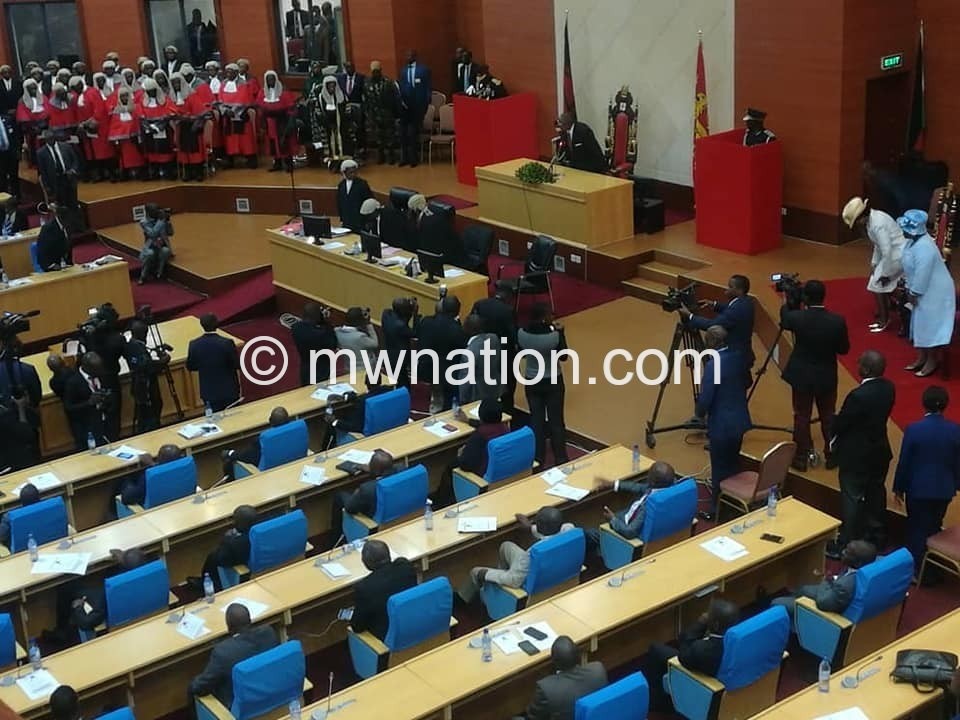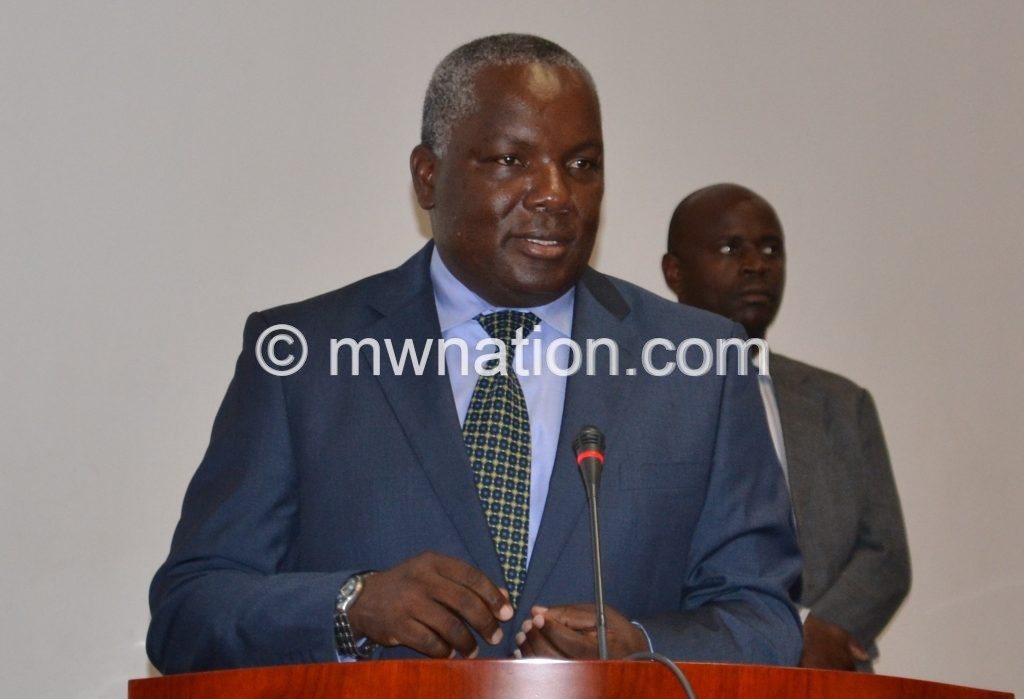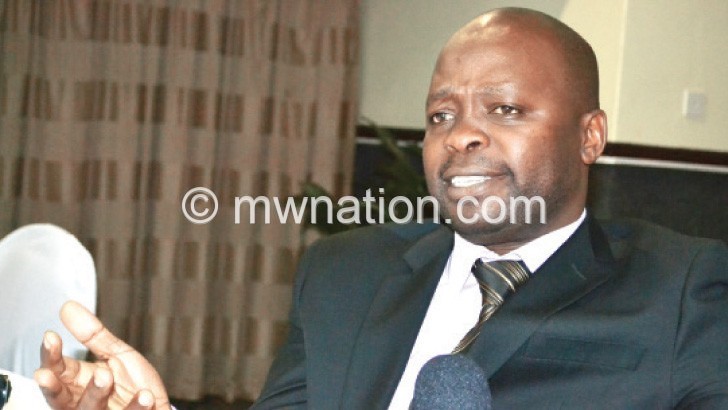Call for vernacular in Parliament
It is a requirement for members of Parliament (MPs) to speak and read English for them to follow and participate in parliamentary proceedings. In fact, parliamentary candidates are supposed to undergo English proficiency test if they don’t have the Malawi School Certificate of Education (MSCE).
As a matter of fact, Section 51 (1) (b) of the Constitution stipulates that A person shall not be elected as a member of Parliament unless they are able to speak and to read the English language well enough to take part in the proceedings of Parliament.

However, for years, the nation has witnessed some MPs struggle to speak English and others fail to actively participate in deliberations.
It is on record that once, the then Blantyre City Central parliamentarian sent stitches of laughter in the house when he inadvertently referred water bowsers as water bouncers. Besides, the then Thyolo South West parliamentarian said in the House cars on some road ‘capsize’, instead of overturn.
In every parliamentary term, there are some MPs who do not participate in the debates and virtually only warm up benches for the five-year period, probably, due to the language barrier.

Some MPs who spoke improper English in Parliament saw audio clips of their voices go viral on social media, especially WhatsApp, attracting ridicule from the general populace.
It is such ridicule, some quarters argue, that makes MPs with English language deficiencies not to participate in deliberations.
Political scientist Blessings Chinsinga says the issue of language in Parliament is one of the challenges that have been affecting deliberations in the august House.
He says the requirement of English as a medium of deliberations in Parliament is a limiting factor to meaningful participation for the majority of MPs.

In 2016, the Southern African Development Community Parliamentary Forum (Sadc-PF) agreed to advocate the use of vernacular for parliamentary debates to narrow the gap that exists between policy makers and communities on the ground.
On her return from the meeting, former MP for Salima North West Jessie Kabwila suggested the same to the Malawi august House.
She said the Sadc-PF advocacy for use of vernacular language in Parliament was meant for the region to benefit from its quest for social economic growth between member states’ policy makers and implementers.

Kabwila, who was the forum’s women caucus chairperson, pleaded with law makers to consider conducting their debates in local languages for effective communication.
“You will find that all policy documents and deliberations are done in English and yet a few of us can analyse and translate them into practice and usage to the public most of whom don’t understand due to illiteracy levels,” she said.
Kabwila said it is high time Malawi Parliament started conducting deliberations in vernacular for the sake of voters in rural areas where most MPs operate from.
The use of vernacular has taken ground in some Sadc countries including South Africa, Tanzania, Botswana and Namibia.
For instance, in Namibia, where official language is also English, MPs are allowed to use vernacular during proceedings provided that adequate provision is made for translation. In the South African parliament debates are conducted in Afrikaans, English, Venda and Zulu, depending on a politician’s flexibility with the language.
The decision was made to improve quality of debates in Parliament after many people on social media in that country reasoned that some MPs with great ideas refrained from the debates due to language barriers.
To this effect, Kabwila said Malawi MPs should buy the idea of using vernacular as a medium of communication in the August house’s deliberations.
Now that the country has ushered in new parliamentarians, following the May 21 elections, Kabwila reiterates that the use of local languages in Parliament is not only viable but also paramount.
She says use of local languages would determine what MPs communicate in the House and their constituents, and make them accountable to the people that voted for them.
“Usage of local language is important and it has to be considered because constituents will be able to check what their MPs say.
“If an MP says ‘my constituents have sent me…,’ how do they check whether what he or she is saying is true if they are not following the deliberations due to language barrier?” Kabwila says.
As such, she proposes that there should be target simultaneous translation in plenary but documentation should remain in English.
Former Speaker of Parliament Richard Msowoya says it is difficult to say whether an individual MP fails to contribute to the debates because of language problems as members are free to speak or not.
However, Msowoya is non-committal on whether the use of English as a language of communication in Parliament limits some members from contributing to the debates.
He could also not say whether use of local languages is viable or not, saying it is a constitutional matter which MPs may wish to amend should that need arise.
“Use of English in Parliament is a constitutional matter and if members felt limited by it then they can amend it to suit their wish and the Malawian people,” he says.
Political commentator Chimwemwe Tsitsi says the issue of language in Parliament is a complex one, which has to be looked at properly.
He says much as the proposal is good, it might hamper certain issues hence the need to look at dynamics first.
“Much as it would be better for MPs, who cannot effectively express themselves in the Queen’s language, and for the constituents who do not understand English to follow the events in Parliament well enough, there are limiting factors to such a proposal.
“If it happens that the proposal is adopted, then a lot of things have to be changed. Most documents such as bills and other government policies are prepared in English and this has to be changed as well,” he says.
The question Tsitsi asks, should there be that change, is: “Do we [as a country] have the capacity to do that?”
Much as Malawi has a number of vernacular languages, the official vernacular language for the country is Chichewa and it is taught in primary and secondary schools.
But Tsitsi, a lecturer in political communication at The Polytechnic, a constituent college of the University of Malawi, says there are some people who cannot speak Chichewa; therefore, they also need to be considered.
He cited former Minister of Finance, Economic Planning and Development Goodall Gondwe whom, he said, has challenges in Chichewa but can speak fluent Tumbuka.
Since Malawi adopted English as an official language, in most official meetings vernacular languages are not recommended. However, generally, participants tend to switch between English and Chichewa.





